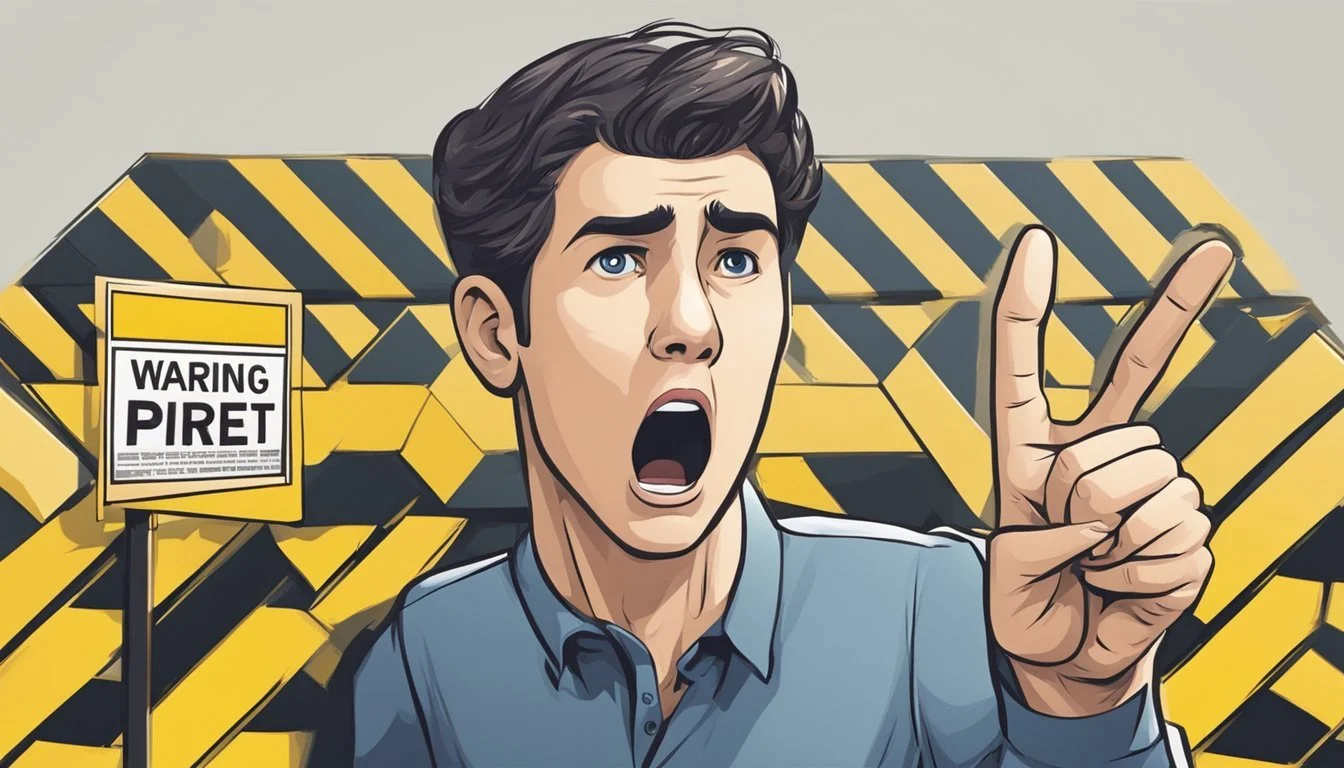Understanding Sociopathy in Everyday Language
A sociopath is someone who exhibits a persistent pattern of disregard for others and lacks empathy. This term is often used informally to describe individuals with antisocial personality disorder (ASPD), a mental health condition characterized by a range of problematic behaviors.
People with sociopathic tendencies may ignore social norms, break rules, and act impulsively without considering the consequences of their actions. They frequently manipulate others for personal gain and struggle to maintain meaningful relationships. While not all individuals with ASPD are dangerous, some may engage in risky or illegal activities.
Understanding sociopathy is crucial for recognizing and addressing antisocial behaviors in society. Mental health professionals use specific diagnostic criteria to identify ASPD and other personality disorders, focusing on patterns of behavior rather than isolated incidents. Early intervention and appropriate treatment can help manage symptoms and improve outcomes for those affected by this condition.
Understanding Sociopathy
Sociopathy is a complex behavioral condition characterized by a lack of empathy and disregard for social norms. It falls under the broader diagnosis of Antisocial Personality Disorder (ASPD) in clinical settings.
Definition and Key Traits
Sociopathy involves a pattern of behavior that disregards the rights of others. Key traits include:
Lack of empathy
Manipulative behavior
Impulsiveness
Disregard for social norms
Difficulty maintaining relationships
Aggressive or violent tendencies
Individuals with sociopathic traits often struggle to form genuine connections and may exploit others for personal gain. They typically show little remorse for their actions and may engage in risky or illegal activities.
Sociopathy vs. Psychopathy
While often used interchangeably, sociopathy and psychopathy have distinct differences:
Sociopathy:
Generally considered less severe
May result from environmental factors
Can experience limited empathy
More impulsive and erratic behavior
Psychopathy:
Thought to have stronger genetic components
Characterized by a complete lack of empathy
More calculated and controlled behavior
Often better at mimicking normal social interactions
These distinctions are important for understanding and addressing each condition appropriately.
Prevalence of Sociopathy
Sociopathy, as part of ASPD, affects approximately 1-4% of the general population. It is more common in men than women, with estimates suggesting a 3:1 ratio. The condition often becomes apparent in adolescence or early adulthood.
Factors influencing prevalence include:
Genetic predisposition
Childhood trauma or abuse
Unstable family environments
Substance abuse
Early identification and intervention can be crucial in managing sociopathic tendencies and preventing harmful behaviors.
The Sociopath-Psychopath Spectrum
Rather than distinct categories, sociopathy and psychopathy exist on a spectrum of antisocial behaviors. This spectrum includes:
Mild antisocial traits
Sociopathic tendencies
Full-blown sociopathy
Psychopathic traits
Severe psychopathy
An individual's position on this spectrum can vary based on factors like genetics, upbringing, and life experiences. Some may display a mix of sociopathic and psychopathic traits, making precise categorization challenging.
Understanding this spectrum helps in tailoring treatment approaches and assessing potential risks associated with an individual's behavior.
Causes and Development
The development of sociopathy involves complex interactions between biological predispositions and environmental influences. Genetic factors, early life experiences, and social conditions all play crucial roles in shaping antisocial traits and behaviors.
Genetic and Biological Factors
Research suggests a genetic component in the development of sociopathy. Studies of twins and adopted children indicate a hereditary influence on antisocial traits.
Brain imaging studies have revealed structural and functional differences in sociopaths' brains, particularly in areas related to empathy and impulse control. The amygdala, responsible for processing emotions, often shows reduced activity.
Hormonal imbalances, especially low cortisol levels, may contribute to reduced stress responses and fearlessness in individuals with sociopathic tendencies.
Environmental and Social Influences
Childhood trauma, abuse, and neglect significantly increase the risk of developing sociopathic traits. Inconsistent parenting, harsh discipline, and lack of emotional warmth can disrupt normal social development.
Exposure to violence, substance abuse, or criminal behavior in the family or community may normalize antisocial attitudes and behaviors.
Poverty, social isolation, and lack of educational opportunities can create environments where antisocial behaviors are seen as adaptive or necessary for survival.
Early conduct problems, such as aggression or rule-breaking, often precede the development of full-blown antisocial personality disorder (ASPD) in adulthood.
Interplay of Nature and Nurture
The emergence of sociopathy typically involves a combination of genetic vulnerability and environmental triggers. Individuals with genetic predispositions may be more susceptible to negative environmental influences.
Protective factors, such as stable home environments and positive role models, can mitigate genetic risks and prevent the development of sociopathic traits.
Early intervention programs targeting at-risk children and adolescents have shown promise in reducing the likelihood of antisocial behavior evolving into ASPD.
Diagnosis and Identification
Identifying and diagnosing sociopathic traits requires careful assessment by mental health professionals using established criteria and observation of behavioral patterns.
DSM-5-TR Criteria for ASPD
The Diagnostic and Statistical Manual of Mental Disorders, Fifth Edition, Text Revision (DSM-5-TR) outlines specific criteria for Antisocial Personality Disorder (ASPD). These include:
Persistent disregard for the rights of others
Repeated violation of social norms and laws
Deceitfulness and manipulation
Impulsivity or failure to plan ahead
Irritability and aggressiveness
Reckless disregard for safety of self or others
Consistent irresponsibility
Lack of remorse
At least three of these criteria must be present, along with evidence of conduct disorder before age 15.
Signs and Symptoms
Observable signs of sociopathic behavior include:
Charm and charisma used for personal gain
Lack of empathy or concern for others' feelings
Manipulative and controlling behaviors
Impulsive actions without considering consequences
Frequent lying or deception
Disregard for social norms and laws
Aggressive or violent tendencies
Difficulty maintaining relationships
Lack of guilt or remorse for harmful actions
These traits often manifest in various aspects of a person's life, including work, relationships, and social interactions.
Role of Mental Health Professionals
Mental health professionals play a crucial role in diagnosing ASPD and identifying sociopathic traits. Their responsibilities include:
Conducting thorough psychological evaluations
Assessing patient history and behavioral patterns
Administering diagnostic tests and interviews
Differentiating ASPD from other personality disorders
Providing accurate diagnoses based on DSM-5-TR criteria
Developing appropriate treatment plans
Monitoring progress and adjusting interventions as needed
Professionals must maintain objectivity and use multiple sources of information to ensure accurate diagnosis.
Behavioral Patterns and Interactions
Sociopaths exhibit distinct behavioral patterns in their interactions with others. These patterns often involve manipulation, aggression, a lack of empathy, and disregard for social norms.
Manipulation and Deceit
Sociopaths frequently engage in manipulative behaviors to achieve their goals. They may use charm and persuasion to gain trust, only to exploit it later. Lying comes easily to them, and they often create elaborate false narratives.
Sociopaths might use aliases or fake identities to con others. They have no qualms about deceiving people for personal gain or simply for their own amusement. Their ability to lie convincingly makes it challenging for others to detect their true intentions.
These individuals may present a facade of trustworthiness and reliability. However, their actions rarely align with their words. They might make promises they never intend to keep or fabricate entire life stories to impress or mislead others.
Aggression and Violence
Sociopaths can display aggressive tendencies and may resort to violence when it serves their purposes. Their aggression can manifest in various forms, from verbal abuse to physical altercations.
They might use threats or intimidation to control others. In some cases, sociopaths engage in calculated acts of violence to achieve their goals or assert dominance. Their lack of empathy allows them to inflict harm without feeling remorse.
Sociopaths may also exhibit impulsive aggression, reacting with disproportionate anger to perceived slights or obstacles. This unpredictable behavior can make interactions with them volatile and potentially dangerous.
Lack of Empathy and Remorse
A defining characteristic of sociopaths is their inability to empathize with others. They struggle to understand or relate to the emotions and experiences of those around them.
Sociopaths often appear cold or indifferent to the suffering they cause. They may hurt others without feeling guilty or remorseful. This lack of emotional connection makes it difficult for them to form genuine relationships.
When confronted about their harmful actions, sociopaths rarely show genuine regret. They might offer superficial apologies or rationalizations, but these are typically insincere attempts to manipulate the situation in their favor.
Violation of Social Norms
Sociopaths consistently disregard social norms, rules, and laws. They may engage in criminal activities without concern for legal consequences. Their behavior often deviates significantly from what is considered acceptable in their community.
These individuals might frequently violate others' rights and boundaries. They may disregard property rights, personal space, or social etiquette. Sociopaths often act impulsively, without considering the impact of their actions on others or society at large.
Their disregard for social norms can manifest in various ways:
Repeated lying or fraud
Reckless behavior that endangers others
Failure to fulfill financial obligations
Disregard for workplace rules or professional ethics
This consistent pattern of antisocial behavior often leads to conflicts with authority figures and difficulties in maintaining stable employment or relationships.
Impact on Relationships and Society
Sociopaths profoundly affect personal relationships, workplace dynamics, and legal systems. Their manipulative and deceitful behaviors create significant challenges across various social spheres.
Effects on Personal Relationships
Sociopaths struggle to form genuine emotional connections. They often view others as objects to be used for personal gain. This mindset leads to shallow, unstable relationships.
In romantic partnerships, sociopaths may charm initially but quickly become controlling. They disregard their partner's feelings and needs. Trust issues arise due to frequent lying and infidelity.
Family relationships suffer as sociopaths manipulate relatives for money or favors. They show little remorse for hurting loved ones. Children of sociopathic parents may experience neglect or abuse.
Friendships are typically superficial. Sociopaths maintain these connections only when beneficial. They readily abandon or betray friends without guilt.
Sociopaths in the Workplace
Sociopaths can excel in competitive work environments. Their charm and lack of empathy may aid in climbing corporate ladders. However, their presence often creates a toxic atmosphere.
They frequently engage in workplace bullying and sabotage. Sociopaths may take credit for others' work or shift blame for mistakes. Their manipulative tactics can lead to decreased morale and productivity.
Some sociopaths rise to leadership positions. As managers, they may make rash decisions without considering consequences. They often prioritize personal gain over company welfare.
Coworkers find it challenging to collaborate with sociopaths. Their unpredictable behavior and lack of accountability disrupt team dynamics.
Legal Implications and Crime
Sociopaths are more likely to engage in criminal activities. Their disregard for rules and lack of empathy contribute to antisocial behavior. They may commit fraud, theft, or violent crimes without remorse.
The legal system faces challenges in dealing with sociopathic offenders. Their manipulative nature allows them to evade consequences. They may use charm to influence judges or juries.
Rehabilitation programs often prove ineffective for sociopaths. Their lack of guilt or desire to change complicates treatment efforts. This can lead to higher rates of recidivism.
White-collar crimes are common among sociopaths in professional settings. They may embezzle funds or engage in insider trading. Their actions can have far-reaching economic impacts.
Treatment and Management
Treating and managing sociopathic tendencies involves a multi-faceted approach. Professional interventions, medication, and support systems play crucial roles in addressing this complex mental health condition.
Therapeutic Approaches
Cognitive Behavioral Therapy (CBT) is a primary treatment for individuals with sociopathic traits. This approach helps patients recognize harmful thought patterns and behaviors, replacing them with healthier alternatives.
Psychodynamic therapy explores past experiences and relationships to understand the root causes of sociopathic tendencies. This can be particularly beneficial for those with childhood trauma or neglect.
Mentalization-based therapy teaches individuals to understand their own mental states and those of others, potentially improving empathy and interpersonal relationships.
Medications and Therapy
While no specific medication treats sociopathy directly, certain drugs may help manage associated symptoms. Antidepressants can address mood issues, while anti-anxiety medications may help with impulsivity.
Mood stabilizers might be prescribed to control aggressive outbursts. For individuals with co-occurring substance use disorders, medication-assisted treatment can be valuable.
Combining medication with psychotherapy often yields the best results. Regular psychiatric evaluations ensure proper medication management and dosage adjustments.
Support Systems and Rehabilitation
Family therapy can be instrumental in addressing relationship dynamics and creating a supportive home environment. It helps family members understand the condition and develop coping strategies.
Group therapy provides a platform for individuals to learn from peers and practice social skills. It can be particularly effective for those with borderline or narcissistic personality disorder traits.
Vocational rehabilitation programs assist in developing job skills and maintaining employment. This fosters independence and integration into society.
Community support groups offer ongoing encouragement and a sense of belonging. They can be crucial in preventing relapse and maintaining long-term progress.
Living with a Sociopath
Living with a sociopath presents unique challenges that require careful navigation and self-protection. Recognizing manipulative behaviors and maintaining emotional well-being are crucial.
Strategies for Coping
Educate yourself about sociopathic traits to better understand and predict behaviors. Remain vigilant for signs of manipulation or deceit. Maintain a strong support network of trusted friends and family.
Keep detailed records of interactions and incidents. This documentation can help validate your experiences and provide evidence if needed.
Practice emotional detachment to reduce vulnerability to manipulation. Avoid sharing personal information that could be used against you.
Develop self-care routines to manage stress and maintain mental health. Regular exercise, meditation, and hobbies can provide emotional balance.
Establishing and Maintaining Boundaries
Set clear, firm boundaries and consistently enforce them. Be specific about acceptable and unacceptable behaviors.
Learn to say "no" without guilt or explanation. Sociopaths often exploit perceived weaknesses or hesitation.
Limit contact when possible, especially in emotionally charged situations. Use written communication for important matters to maintain a record.
Be prepared for boundary testing and attempts to cross lines. Stay resolute in enforcing your limits.
Avoid engaging in arguments or trying to appeal to empathy. Sociopaths may view these as opportunities for manipulation.
Seeking Professional Help
Consult a mental health professional experienced in personality disorders. They can provide strategies for coping and maintaining personal safety.
Consider therapy to process experiences and rebuild self-esteem. Sociopathic relationships often leave lasting emotional impacts.
Join support groups for individuals dealing with sociopaths. Sharing experiences can provide validation and practical advice.
If living with a sociopath becomes unsafe, seek help from domestic violence resources. They can assist with safety planning and legal options.
Consult a legal professional to understand your rights and options, especially if children are involved or shared assets are at stake.
Prevention and Awareness
Preventing sociopathic behavior and raising awareness involves multifaceted approaches. These strategies aim to address root causes, intervene early, and promote overall mental wellness in society.
Educating the Public
Public education campaigns play a crucial role in prevention. These initiatives focus on teaching people to recognize signs of antisocial behaviors and empathy deficits. Schools can incorporate lessons on emotional intelligence and social skills into their curricula.
Media outlets can share accurate information about sociopathy, dispelling myths and stereotypes. This helps reduce stigma and encourages seeking help when needed.
Community workshops and seminars can provide practical tools for identifying and responding to concerning behaviors. These events often feature mental health professionals who offer expert insights.
Early Intervention Strategies
Early identification of at-risk individuals is key to prevention. Mental health screenings in schools and pediatric clinics can detect early signs of antisocial tendencies.
Family support programs assist parents in fostering empathy and prosocial behaviors in children. These programs often include parenting classes and counseling services.
Mentorship initiatives pair at-risk youth with positive role models. This guidance can help steer young people away from destructive paths and toward healthier relationships.
Promoting Mental Health Wellness
Creating supportive environments is essential for mental health. Workplaces and schools can implement policies that prioritize emotional well-being and stress reduction.
Access to mental health services should be widely available and affordable. This includes therapy, counseling, and support groups for individuals struggling with empathy or social connections.
Mindfulness and emotional regulation techniques can be taught in various settings. These skills help people manage stress, improve self-awareness, and build healthier relationships.
Encouraging regular mental health check-ups, similar to physical health exams, can normalize seeking help and prevent escalation of antisocial behaviors.







